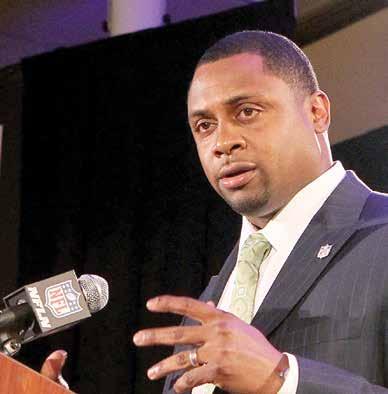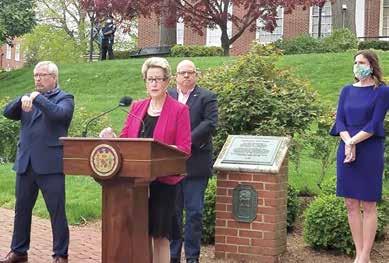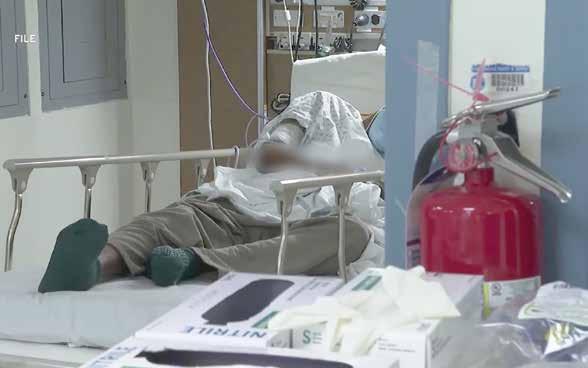BUSINESS Financial Literacy will soon be Required in Prince George’s Schools By William J. Ford WI Staff Writer @jabariwill Prince George’s County Public Schools will join a handful of other educational systems in Maryland to make financial literacy a graduation requirement for high school students. Each county high school will offer it as a course in two years, but full implementation as a graduation requirement won’t begin until the 2023-24 school year. Besides updating the curriculum, about 40 extra full-time teachers and staffers would be needed. “What we don’t realize is that our students begin to receive applications to get credit cards while they are still in high school and not fully understanding what debt can do early on to their livelihood and future as they’re growing up,” public schools CEO Monica Goldson said Friday, April 17. “They need to understand about loans when going to college. It helps them to truly understand what they’re making a commitment to.” Prince George’s is now one of
eight state school systems, including neighboring Charles County, to implement such a program, offering it as either a half- or full-credit stand-alone course. According to a resolution approved by the school board April 15, it would cost about $4 million to incorporate the program. The instruction students would receive includes: • Revenues and expenditures in a household. • Analyzing the meaning of sales, income and property taxes. • Managing debt and credit. • Strategies on saving and investment. “Everyone understands the importance of money, but not everyone knows how to use it to set themselves up for future success and financial stability,” school member Raaheela Ahmed said Friday, April 17. “That knowledge gap is part of what causes inequity in our communities.” Although financial literacy will remain an elective course in high school for the next two years, middle school students receive some fiscal education thanks to the Ju-
nior Achievement Finance Park in Landover. Students must complete coursework before taking a field trip to the park to receive hands-on experience to balance a budget at makeshift store fronts to purchase groceries, a home and even health insurance. Prior to the coronavirus pandemic, financial literacy became a topic earlier this year nationwide to push for additional student achievement. The Council for Economic Education of New York City recently released a “Survey of the States” report in February. Although all school systems include some form of financial education in kindergarten through 12th grade, the report
said D.C., Maryland and 25 other states don’t require high school students to take an economics course. Some lawmakers and parents in Maryland haven’t supported it on a statewide level. Last year, the state Parent Teacher Organization wrote a letter in opposition to the course, calling it another unnecessary graduation requirement forced upon high school students. “Without education being fully funded there is uncertainty that each high school can hire a teacher to offer a half semester exclusive instruction in financial literacy,” Latisha Corey, PTA president, wrote in February 2019. “At this time, Maryland needs time to refocus the needs and priority of students
without adding measures to possibly defray their graduation.” Because the Maryland General Assembly ended nearly three weeks early in March because of the coronavirus outbreak, financial literacy legislation from Del. Jay Walker (D-District 26) of Fort Washington didn’t get reviewed out of the Ways and Means Committee. “You kind of question why it took so long, but at the end of the day, I’m glad we are doing the right thing,” said Walker, who presented state legislation on the topic for the past several years. “Hopefully, this will build momentum and take it across the state.” WI
5 Prince George’s County Public School high school students will be required to take a financial literacy class in order to graduate. (Courtesy photo/Junior Achievement)
WWW.WASHINGTONINFORMER.COM / THE WASHINGTON INFORMER
APRIL 23 - 29, 2020 13







